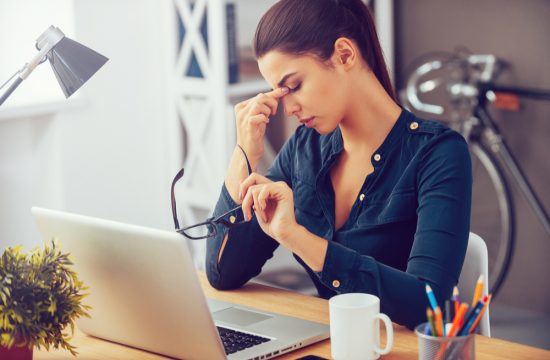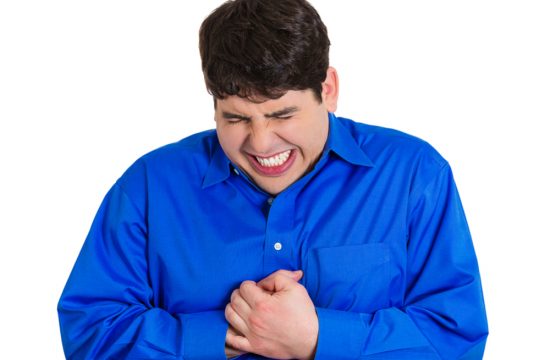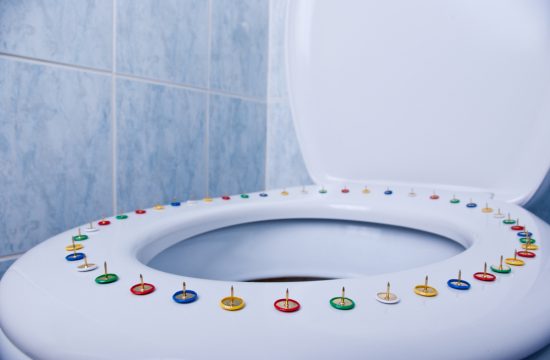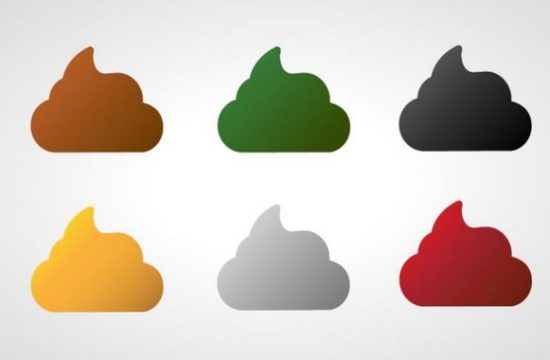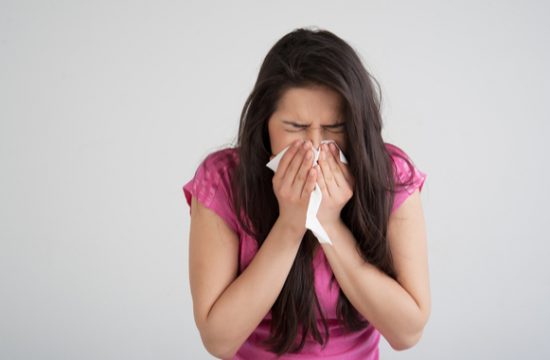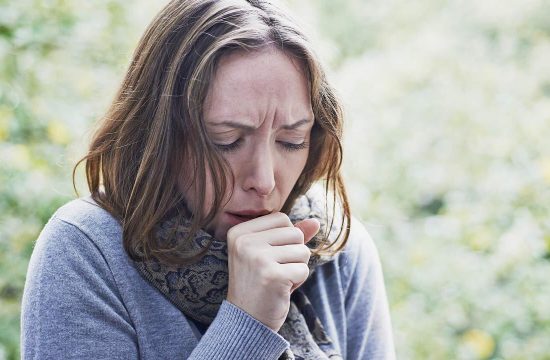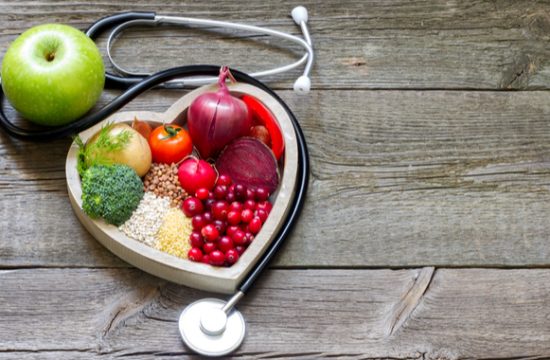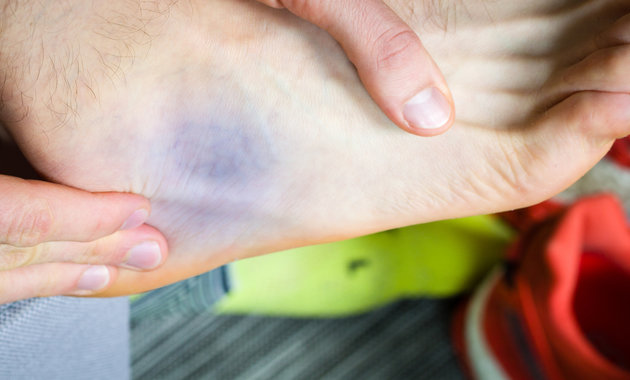It was a very important day for Anuj. He had a final round of interview with the CEO of a multinational company. With confidence tied up to his sleeves, he left the house saying goodbye to his wife and children. After reaching the interview venue, he sat outside at the reception, waiting for someone to call him inside. With time, he started feeling bit nervous and stressed. But this was not the end. He felt a sharp pain in his head and a flush of anxiety ran through him. He thought it to be normal because of the tensed situation he was in. But he was wrong. After some time, he felt a heavy pound on his chest, little breathlessness and started sweating.
With a heavy force, he sat on the chair and drank a glass of water. After becoming bit normal, he completed his interview and immediately rushed to a nearby hospital to consult a doctor. His doctor asked him to get his blood pressure checked, to which he said that he does not need as his pressure is quite normal. With the doctor’s urge, he got his pressure checked and was shocked to know that he has entered the zone of Hypertension.
To this, his doctor stressed how important it is to get your pressure checked regularly to avoid any fatal situations.
According to Dr. Satish Koul, Director & HOD, Department of Internal Medicine & Diabetes, W Pratiksha Hospital, anyone who is overweight, have issues of blood pressure in their family, or having any kind of disease such as diabetes should get their blood pressure monitored after the age of 30. Pregnant women also need to monitor their blood pressure regularly.
While it’s considered perfectly normal to have a spike in blood pressure while and shortly after running or doing any kind of heavy physical activity, but high blood pressure once the heart rate has returned to normal and your body is otherwise at rest is something to worry about.
So, what are you waiting for? If you do not want such a risky moment in your life, get your blood pressure checked right today.
Let’s dive into the importance of having your blood pressure measured regularly.
1. Tells you if you have hypertension
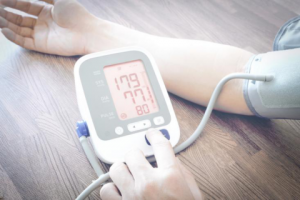
Regular monitoring is effective in not only diagnosing hypertension but also to find out symptoms that mimic hypertension. Keeping a check on your blood pressure will also help rule out external factors that might lead to a rise in your blood pressure including work tension, mood swings, and even personal complications.
2. Gives a sneak-peek to other complications
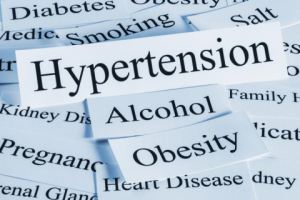
a) Heart disease
High blood pressure will increase the workload of the heart which in turn reduces the heart’s ability to pump enough blood to the different organs eventually leading to heart failure. Sounds scary, isn’t it? Don’t delay and get your BP checked regularly.
b) Stroke
The rise in blood pressure weakens the small vessels in the brain causing them to rupture. When this happens part of your brain will no longer get the blood and oxygen that it needs and since brain controls your body movement, it can threaten your ability to move, function and think. Severe stroke may even cause paralysis or death.
c) Your kidneys at risk
You might be unknowingly suffering from high blood pressure and if you have never got it checked then its time as even your kidneys are not spared. High blood pressure damages the small vessels in your kidney and reduces the blood supply to it. As a result, your kidney will start losing its normal functions and eventually kidney failure.
d) Struggling between the sheets?
Are you fighting the battle of sexual dysfunction? Yes, then you should better get your blood pressure checked. So what is the connection between high blood pressure and sexual dysfunction?
In case of men: If you have a high blood pressure, the arteries supplying blood to the penis gets narrowed leading to reduced blood supply to the penis. As a result of which you will face an inability to maintain an erection while having intercourse.
In case of women: High blood pressure can reduce blood flow to the vagina which may lead to decreased sexual desire, dryness of vagina, etc.
e) Are you burning the midnight lamp?
Sleep plays an instrumental role in maintaining your health. But the sad news is that high blood pressure and sleep are interrelated. So if you are suffering from disturbed sleep (in medical terms known as Obstructive Sleep Apnoea) then its time to get your blood pressure checked as it might be because of your high blood pressure.
f) Having fragile bone?
Yes? Then you must be aware that hypertension also leads to calcium elimination from the body which is a major reason for bone loss, especially in elder women.
g) Pregnant?? Get yourself checked for blood pressure
If you are planning to get pregnant, it is advisable to get yourself checked regularly for high BP as a rise in blood pressure during pregnancy can cause reduced blood flow to the placenta depriving the oxygen and nutrient supply to the growing baby. This can lead to low birth weight of your baby.
3. Helps administer emergency treatments
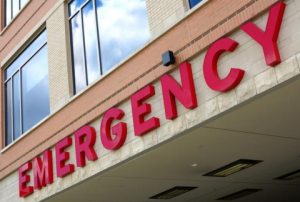
Since high blood pressure creates different complications like heart disease, kidney failure, diabetes etc., regular monitoring will help you identify potential emergency situations. For e.g., if you are having general hypertension, you need to regulate your blood pressure at 140/90 mmHg and in case of diabetes or kidney failure you need to control the levels at 130/80 mmHg. If your pressure shoots above 180/140mmHg you need immediate treatment to avoid any fatal complications.
4. Helps you maintain your health diary
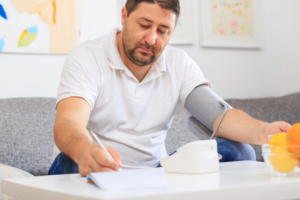
Since checking blood pressure helps you diagnose any kind of health complications that you might be facing, it also will help you and your doctor note down your symptoms and provide valuable information regarding treatment outcomes. This practice will also help your doctor to adjust your drug and dosage as needed and also to avoid any future complications.
Types of blood pressure monitors
The equipment to measure blood pressure is called a sphygmomanometer. There are two types of monitors which you can buy,
i) Aneroid
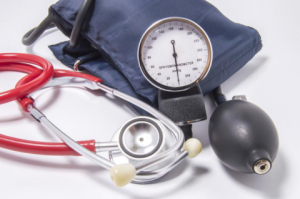
ii) Digital
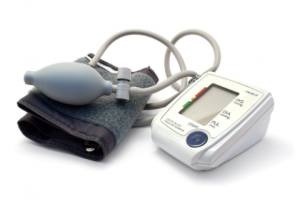
These are operated manually while digital models self-inflate in the arm. Besides this, there are two types of monitors on the basis of where the cuff is wrapped- Upper arm and Wrist type.
Where to buy a blood pressure monitor?
You can buy a blood pressure monitor from good pharmacies, medical supply stores or online, and you don’t need a prescription to buy one.
But it is advisable to consult your doctor before buying so that you get the one according to your needs and also get an idea of using your monitor effectively.
How to choose the right blood pressure monitor?
Nowadays there is a wide range of blood pressure monitors which are available to buy. But when it comes to choosing the right type of blood pressure monitor you need to choose the one that will give you accurate results and perform at its best effortlessly.
Have a look at some important points to consider while buying a blood pressure monitor:
1. Make sure the cuff fits your arm: Check the fit and make sure the cuff is appropriately sized for your arm as choosing a wrong size cuff can give you inaccurate results.
2. Choose a monitor that is easy to use: Buy blood pressure measuring instrument which is easy to use because you do not want to buy an ultra complicated one and keep it in your cupboard without using.
3. Consider the cost: It would be a wise decision of choosing a cheaper blood pressure monitor but make sure your monitor has all the required features.
4. Make sure it’s appropriate: If you are buying a blood pressure monitor for elders, pregnant women or children make sure it is appropriate for all the mentioned conditions.
5. Check for its accuracy: When you buy a monitor check the packaging to make sure it is tested and validated for accuracy
6. Consider a portable monitor: Are you a frequent traveler or are you advised to measure your blood pressure several times a day? Then it is better to buy a compact and a portable monitor. Look for the one that comes with a carrying case.
7. Keep a check on the battery: Change the batteries to avoid any kind of error in readings for instance if the low battery indicator is on or cuff is not inflating, the batteries need to be replaced.
Let’s have a look at some tips to keep in mind while measuring blood pressure:
- Take your blood pressure when you first wake up in the morning, before leaving the bed and again once before going to bed.
- Stay away from caffeine, alcohol and tobacco for at least 30minutes before testing your pressure.
- Preferably wear a short-sleeved shirt while getting your blood pressure measured in order to have an easy access to your arm.
- Wrap the cuff correctly onto your arm to avoid getting inaccurate readings. Empty your bladder before checking your pressure as a full bladder can affect the accuracy of your results.
- Maintain a sitting posture so that your arm, heart and the monitor is at the same level while measuring your blood pressure.
- Don’t talk while taking your pressure.
- Measure your blood pressure by following the instrument’s instructions.
- Do not get nervous if a reading is high, just relax and try taking measurements again.
- Maintain accurate records of your readings and time of the day when it is done.
So you must have got an overview of the importance of getting your blood pressure measured and also some tips to help you choose the best BP monitor.
But just pause and think, won’t it be relieving if you do not have high blood pressure at all.
Like the saying goes, “Prevention is better than cure”, so why not try to control your blood pressure effectively through your diet and exercise.
Below is a list of common lifestyle changes that you need to incorporate to keep hypertension at bay:
1. Cut down on salt
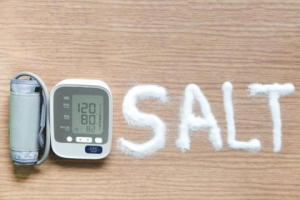
Dr. Satish Koul says that Indians have the tendency to have added salt in their diet. One should thus reduce the salt consumption to 25% of what they are taking, by restricting the intake to 3-4gm/day. Also, food items such as pickles, papads, namkeen should be avoided.
2. Drink alcohol but in moderation
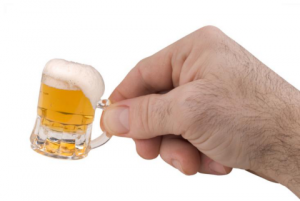
i) Research has found that consuming more than 2 drinks a day increases the risk of hypertension in both men and women.
ii) It can also reduce the effectiveness of blood pressure medications.
iii) Also, avoid binging too much of snacks like salted peanuts and any other snack along with your drink as it contains added salt putting you again at risk.
According to Dr. Koul, men should not have more than 2 drinks a day (1 ounce i.e., 28ml) and women should restrict to 1 drink a day.
3. Get your feet rolling

i) Everyone advises indulging in physical activities. But a moderate activity of 30 minutes of brisk walk five times a week is enough to keep yourself healthy.
ii) You do not need to hit the gym or indulge in any form of weight training to keep a distance from various diseases.
4. Shed that extra pound
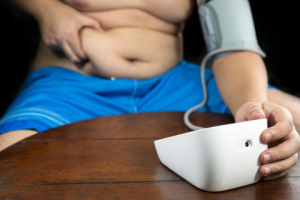
i) Excess weight puts extra load on your heart putting you at the forefront of various heart diseases.
ii) Consult your dietitian if you are overweight and try to maintain your weight.
5. Manage your stress
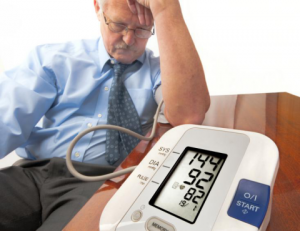
i) Stress is an important contributor to high blood pressure. So know your stress triggers and try to avoid them.
ii) Try to meditate or take 15 minutes out of your busy schedule to sit quietly and breathe deeply.
What to avoid and what to eat if you have High Blood Pressure?

Show the following an exit door from your diet:
- Canned food like soup, sauce, pickles, fish
- French fries or any form of junk foods
- Frozen food like sausages, parathas, meat
- Ready to eat packet foods
- Soft drinks, bakery products
A diet low in sodium and rich in potassium, calcium and magnesium, known as the DASH diet (Dietary Approaches to Stop Hypertension) can help lower your blood pressure.
Welcome the following to your diet which will help lower blood pressure:
- Watermelon
- Bananas
- Pomegranate
- Carrots
- Spinach
- Beetroot
- Beans
- Oats
- Garlic
- Yogurt
- Sweet potatoes
Consume at least 80gms of fruits and vegetables in a day.
Important Points To Remember
- Maintain a blood pressure chart to record your test results. The normal blood pressure range of a person should be between 120-140mmHg (Systolic or the top number) and 80-90mmHg (Diastolic or the bottom number).
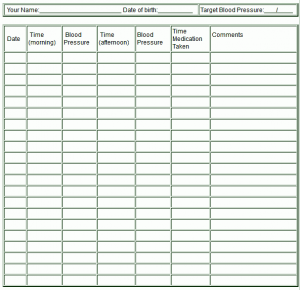
- It is best to take 3 readings, each about 2 minutes apart and then take an average of the readings for more accurate results.
- The test can also be performed at the same time on consecutive days
- If you find abnormal readings across 4-5 tests, consult your doctor.
Hypertension is indeed a chronic disease and with little effort from your side, you can win against this disease. Take care!
Recommended Reads:
How To Choose The Right Blood Pressure Monitor?
6 Effective Ways To Keep Your Blood Pressure In Check
543 total views, 2 views today


